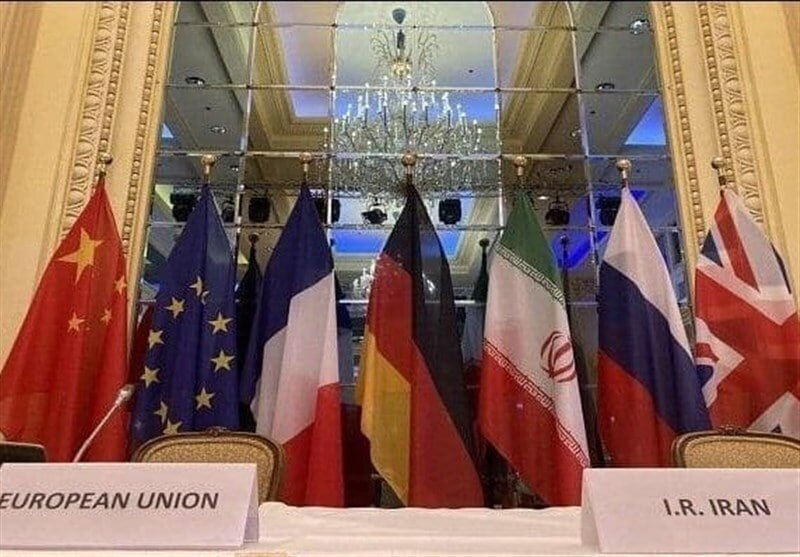American fuss in hope of Iran's miscalculation

TEHRAN – The U.S. has stepped up its rhetoric against Iran amid a continued impasse over reviving the 2015 Iran nuclear deal. Reiterating its readiness for diplomacy, Iran said it won’t budge under pressure.
In the last two months, Biden officials have slowly moved from blaming the hiatus in Vienna talks over the 2015 nuclear deal on Iran to openly saying that the deal, officially known as the Joint Comprehensive Plan of Action (JCPOA), is no longer on their agenda.
And in recent days, Biden officials have resorted to military threats against Iran to revive a deal they say is no longer on their agenda. Secretary of State Tony Blinken has hinted that the U.S. is ready to use the military option against Iran. Addressing the J Street National Conference, Blinken went over the history of U.S. non-compliance with the JCPOA.
However, he threatened Iran for the current state of play between Tehran and Washington. “We continue to believe that diplomacy is the best way to prevent Iran from obtaining a nuclear weapon. But should the Iranian regime reject that path, its leaders should make no mistake that all options are on the table to ensure that Iran does not obtain a nuclear weapon,” he said.
While Iran has repeatedly said that it is ready to reach a good and fair deal in the Vienna talks, Blinken accused Iran of not being serious about reviving the JCPOA. “Since President Biden took office, we’ve focused on rebuilding a united approach with our allies and partners, putting us in a much stronger position to exert coordinated, effective pressure on Iran. Together we engaged in a meaningful diplomatic process to see if we could reach agreement for a mutual return to the JCPOA, but Iran has repeatedly demonstrated that it is unwilling or unable to commit to the steps that it needs to take,” he alleged.
The remarks came a few days after U.S. envoy for Iran Rob Malley said the military option against Iran is still on the table. “If none of that works, the President has said, and, as a last resort, he will agree to a military option because if that’s what it takes to stop Iran from acquiring a nuclear weapon, that’s what will happen. But we’re not there,” Malley said in a webinar at Foreign Policy.
The U.S. resorting to the military threats has long been rejected by Iran as a ploy to get more concessions from Tehran. The Iranian authorities have said that they will not be impacted by such threats.
On Monday, Nasser Kanaani, the spokesman for the Iranian foreign ministry, said at a weekly press conference that American authorities are aware that Iran is not prepared to negotiate under threats and coercion.
He reaffirmed the Islamic Republic's dedication to the negotiations aimed at resurrecting the nuclear agreement with major nations, but he also stated clearly that Tehran is not prepared to engage in negotiations while being threatened or under duress.
Iran's position on the negotiations, according to Kanaani, is "fully clear," and Tehran is dedicated to using diplomacy to seek a settlement.
However, the U.S. seems to be moving toward ramping up its military threats against Iran. But the problem is that Iranian officials do not take these threats seriously because they know that these threats are aimed at extracting concessions from Iran. That has prompted some experts in the U.S. to demand more threats against Iran.
Matthew Continetti, an expert at the American Enterprise Institute, is a case in point. In an opinion piece for National Review, Continetti wrote, “If all goes well, military force won’t be necessary. But for all to go well the Ayatollah, his army, and the Islamic Revolutionary Guard Corps need to take the threat of force seriously enough that it scrambles their calculations and spooks them into concessions.”
But the Leader of the Islamic Revolution, Ayatollah Seyed Ali Khamenei, has long said that Iran’s calculations won’t be impacted by U.S. threats.
In an October 2020 speech, the Leader underlined that Iranian officials should not be intimidated by the enemy’s threats and and threats should not impact calculations.
“Rationality means good calculation. [It means] right calculation and [having] a healthy calculation system. That is rationality. Some refer to getting intimidated when speaking of rationality. When they say be rational, they mean be intimidated, be passive, and escape the enemy. No, [that is not right]. Cowards are not entitled to speak of rationality. Escape and flight do not mean rationality,” he said.
The Leader underlined the need to protect the calculation system.
